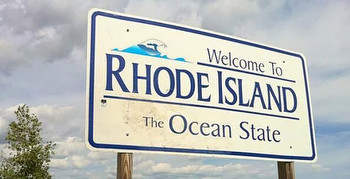Rhode Island Becomes Seventh State With Online Casino Gaming

Rhode Island became the seventh state to offer online casino gaming, with Bally’s adding the vertical for Ocean State bettors Tuesday.
It is the first state to launch online casino gaming since Connecticut in October 2021, though Delaware began 2024 by switching operators from 888 Holdings to BetRivers. Bally’s has been offering mobile sports betting in the Ocean State since September 2019 and has Rhode Island’s only two brick-and-mortar casinos in Lincoln and Tiverton.
“We are pleased to launch this new gaming product, which is borne out of our partnership with the General Assembly, Governor (Daniel) McKee and our regulators … to enhance state revenue and better position the state’s casinos in the competitive New England gaming market,” said Craig Eaton, president of Bally’s Rhode Island Operations. “As with all gaming operations, the State will retain complete regulatory control of iGaming, with nearly 62% of the slot revenue and 15% of the table game revenue directed to the state.”
Bally’s will initially offer 170 slot games with its online casino launch, as well as live dealer games for blackjack and roulette. Bally’s constructed a 4,000-square foot live dealer table games studio at its Lincoln venue and expects to generate up to 75 full- and part-time jobs when fully operational.
One notable difference between online casino gaming and in-person gambling is that Bally’s online casino will require a minimum age of 21 to wager, compared to 18 at its two brick-and-mortar locations. Bally’s will also have responsible gaming protocols in place, including deposit and session limits, spending and wagering limits, a cool-off period that bettors can set from 72 hours up to four weeks, and an adherence to Rhode Island Lottery policies for player self-exclusion requests.
New England’s competitive gaming market
Eaton’s comments about the “competitive New England gaming market” ring true, as Massachusetts launched sports betting last year and Connecticut’s online casino gaming has gained a foothold with Mohegan Sun and Foxwoods aligned with FanDuel and DraftKings, respectively. The Nutmeg State generated $334.6 million in adjusted gross revenue from online casino gaming in 2023, which resulted in $60.2 million in state taxes. Tax revenue in Connecticut was up 48.4% from 2022, an increase of $19.7 million.
Last November, Christiansen Capital Advisors released an eight-year forecast of projected operator revenue and state taxes covering fiscal years 2024-32. It projects the state to generate $5.8 million in tax revenue from $11.7 million in adjusted gross revenue for fiscal year 2024, while the first full year of online casino gaming in fiscal year 2025 would see $28.1 million worth of tax receipts from $56.6 million in AGR. By fiscal year 2032, the estimated $121 million AGR would result in $59.4 million in tax dollars.
“I was proud to sponsor the legislation authorizing iGaming in Rhode Island, and I am excited for its implementation,” said Rhode Island Senate President Dominick Ruggerio. “iGaming will ensure that Rhode Island remains at the forefront of the competitive gaming industry, reinforcing a critical revenue stream for the state while providing an alternative form of entertainment.”
“This is a wonderful example of how the Legislature and the private sector can work together to develop initiatives that enhance state revenues, which in turn, benefit our taxpayers,” added Speaker K. Joseph Shekarchi. “I congratulate Bally’s and its Rhode Island leadership team on its successful launch of this online gaming program, as well as their efforts to continuously seek ways to keep Rhode Island at the forefront of this competitive New England gaming market.”
Jump start for online casino expansion?
For all the talk about how online casino gaming is the wave of the future, the 30 months between state launches from Connecticut to Rhode Island show it is still a slow go. Many states have discussed it and a few have introduced legislation, but roadblocks continue to persist — most notably concerns over the cannibalization of brick-and-mortar casino revenue and bettor fatigue as the widespread availability of mobile sports betting has reached almost three-quarters of the United States.
Two states long considered prime locations for online casino gaming, Indiana and Illinois, have struggled to find momentum to move forward. Indiana legislators placed a moratorium on all gaming bills for 2024 following a guilty plea by former Indiana Rep. Sean Eberhart to a federal charge of conspiracy to commit honest services fraud last November. That came after three consecutive years of online casino bills failing to make it out of committee in Indianapolis.
Illinois legislators have filed bills in the current General Assembly, but the state is in the midst of a large retail casino expansion phase — highlighted by Bally’s building a $1.7 billion casino in downtown Chicago while it runs a temporary casino within the city. Additionally, any talk of passing online casino gaming must include placating the food, beverage, and service industry as Illinois is home to the nation’s most extensive video gaming terminal (VGT) network. The 47,000-plus terminals statewide generated $980.7 million in total tax revenue in 2023, of which $836.5 million went to the state.






































